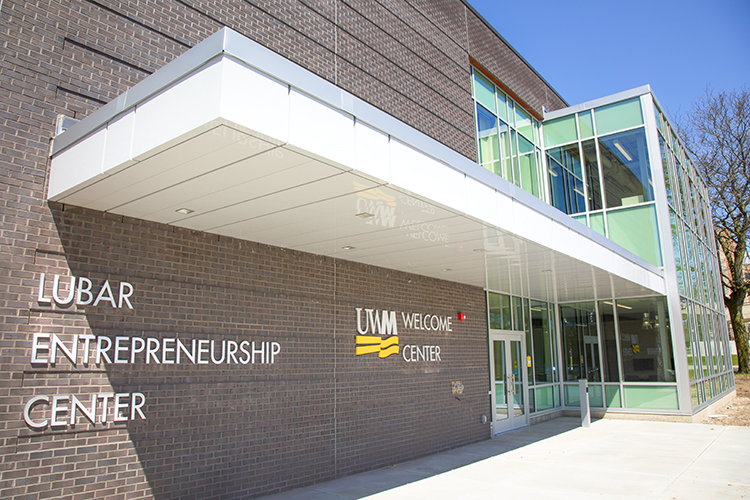Evers Has Chance to Stimulate Startups
But he needs to reconsider his “fund of funds” idea, consult experts.
The Evers administration is in a position to provide massive help to the businesses in Wisconsin that have been set back by the COVID epidemic. The governor will have $3.2 billion in new dollars from the American Rescue Plan passed by the Democratic congress and signed by President Biden.
That’s a lot of unrestricted money. The governor has resisted legislative oversight of those funds, so it’s most likely he will be calling the shots.
A good example of fuzzy policy is the Evers proposal for a new “fund-of-funds” to the tune of almost $100 million of state money. It is a half-baked concept at this point, but it does show that the governor has some interest in stimulating startups in the state.
It is now pretty much conventional wisdom that new companies are responsible for most of the net gain in jobs, while established companies try to reduce head counts by consolidating, streamlining, reorganizing or leaning down their operations.
The Wisconsin Technology Council ran a webinar last week on the fund-of-funds proposal. The broad consensus was that Wisconsin has made progress on building an entrepreneurial ecosystem, but still lags its neighboring Midwestern states on that score.
Sam Rikkers, deputy director of the Wisconsin Economic Development Corporation (WEDC), said there is demand in the pipeline for more early stage money. The demand is there,” he said.
Rep. Mike Kuglitsch R-New Berlin, a panel member at the webinar, pointed out that Wisconsin already has a small fund-of-funds. The Badger Fund of Funds was created in 2014 and has been relatively invisible since. Kuglitsch questioned if the state needed two such entities.
There are several other avenues for stimulating startups. Wisconsin’s Act 255 gives a 25% investment credit to investors in qualified startups. That has proved enormously effective in bringing individual angel investors into the startup game.
Former Rep. Rob Hutton of Elm Grove has proposed raising the tax credits from 25% to 40%. He is onto something.
The advantages of the Act 255 credits are many:
- The state doesn’t have to put forward any funds from the state budget. It just forgoes current revenues as the investors put their money into companies and claim the credit. The new companies and their employees soon start paying taxes.
- Smart investors are making the investments with their own money. No bureaucrats are involved.
- The WEDC has been very effective in affirming the credits. That system is already in place.
Another avenue for some of the newfound money would be to inject it into existing venture funds. (Disclosure: I am a general partner in a small Wisconsin fund). The managers of the existing funds have the best line of sight on where additional investments would produce the best returns. And they could put the money out efficiently versus going to the labyrinth and gymnastics of creating a new fund. It would take a couple of years to raise the $2 million match and get the new funds up and operating.
The biggest gap in the Wisconsin venture capital structure is in the companies that are “pre-VC.” Those are the companies that do not have enough revenues to interest the venture capitalists, but some have $1 to $2 million in revenues and they have an “MVP.” (minimally viable product). That means they have a business concept that has been proven by actually landing real customers.
Its Lubar Entrepreneurship Center is bustling with activity. UWM is becoming known as an “E university.”
Some of Evers unrestricted funds could be used to fund such entrepreneurial support systems across the state.
Long and short, the Evers administration needs to tap the hard-won knowledge about startups gained by investors on the front lines over the last two decades since the Wisconsin Economic Summits of 2001-2003.
That is when the need to jump start the Wisconsin economy through venture capital was brought to center stage by UW president Katherine Lyall and her many advisors in economic sectors across the state.
John Torinus is the chairman of Serigraph Inc. and a former Milwaukee Sentinel business editor who blogs regularly at johntorinus.com.
If you think stories like this are important, become a member of Urban Milwaukee and help support real, independent journalism. Plus you get some cool added benefits.
Op-Ed
-
Wisconsin Candidates Decry Money in Politics, Plan to Raise Tons of It
 Dec 15th, 2025 by Ruth Conniff
Dec 15th, 2025 by Ruth Conniff
-
Trump Left Contraceptives to Rot; Women Pay the Price
 Dec 8th, 2025 by Dr. Shefaali Sharma
Dec 8th, 2025 by Dr. Shefaali Sharma
-
Why the Common Council’s Amended Budget is Good Policy for Milwaukee
 Nov 20th, 2025 by Alds. Marina Dimitrijevic and Russell W. Stamper, II
Nov 20th, 2025 by Alds. Marina Dimitrijevic and Russell W. Stamper, II





















